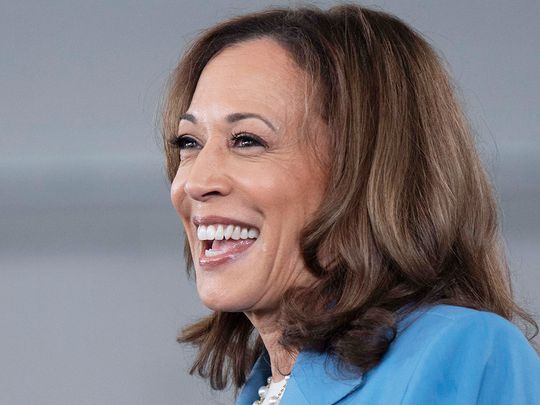
Democrat Hillary Clinton was the first female candidate to secure a major party’s nomination for the US presidency. She ran against Republican Donald Trump in the 2016 election. A few months before the election, Kuwait University’s Gulf Studies Centre hosted a seminar to evaluate the prospects of both candidates
Experts in American political affairs were invited to the seminar, where extensive discussions took place. Most attendees predicted a victory for Hillary Clinton, with only one participant forecasting a win for Donald Trump. This example underscores the inherent unpredictability of US elections. Although Clinton won the popular vote, she ultimately fell short in securing the necessary majority in the Electoral College.
The US democratic election system is perhaps one of the most complex in the world, as it adopts a composite system that does not rely directly on the popular vote but on the Electoral College. Each state’s Electoral College votes are based on its population and the number of its representatives in Congress.
The number of Electoral College votes ranges from 55 for California, the most populous state, to 3 for the District of Columbia, which houses the nation’s capital.
In most states, the candidate who wins the majority of votes, even by a single vote, receives all of that state’s Electoral College votes. However, in Nebraska and Maine, the Electoral College votes are distributed proportionally, based on the percentage of the vote each candidate receives.
It is widely known that the ballot in US presidential elections includes both the names of the presidential candidate and their running mate (vice-presidential candidate). The electoral law stipulates that the two must not be from the same state.
The Electoral College, which determines the outcome of the election, consists of 538 votes, representing the total number of members of Congress, plus three additional votes allocated to the District of Columbia. To win the presidency, a candidate must secure at least 270 Electoral College votes.
“Martyrs of democracy”
The complexity of this system largely stems from the American democratic practices established in the 18th century. At that time, communication between states was challenging, leading to an electoral process that used to take months and required multiple steps to reach a final result.
Like in any society, laws were created to suit the circumstances of the time, but as time passed, these laws remained unchanged due to the difficulty of reaching consensus on reforms. As a result, the system established by the nation’s founders has become an obstacle that impedes the needs of future generations.
After losing the 2016 election, Hillary Clinton was quoted as saying that American women had failed her by expecting her to be ‘perfect.’ Just days before the election, a scandal emerged involving her use of a private email server for official communications, which had been in operation for years before her tenure as Secretary of State.
Clinton also suggested that American women, as she claimed, “do not trust a woman to be commander-in-chief of armed forces.” In her subsequent remarks, she referred to herself as one of the “martyrs of democracy.”
America’s next chapter
Will the obstacles faced by Hillary Clinton be repeated for Kamala Harris? The circumstances are different now, and while Kamala Harris is of African-American and South Asian descent, which contrasts with Hillary Clinton’s background, the question remains: has the American mood shifted enough to support a woman of colour for the presidency?
Eight years after the 2016 election, it is challenging to predict with certainty. Initial indications show that Kamala Harris is leading slightly in opinion polls conducted from time to time. Whether she will face similar hurdles as Hillary Clinton did, or if the political climate has evolved to support a woman of colour in the highest office, remains to be seen.
Donald Trump has many shortcomings, but his supporters often view these as positives, appreciating his bluntness and unconventional approach. Despite facing numerous legal challenges and even convictions, his base remains steadfast. Kamala Harris faces significant obstacles. However, a strong turnout from the younger generation could be crucial for her success.
The presidential race that the world is closely watching often seems filled with “absurdities”, including harsh rhetoric, crude accusations, and significant manipulation. The US election has become an industry unto itself, with substantial financial investments and numerous promises, some of which may seem to stretch beyond recognised national interests.
For instance, Donald Trump promised to give American oil companies greater freedom and free their hand in oil exploration, even if it meant potential harm to the environment.
The difference between the 2016 and 2024 elections is that Donald Trump has since demonstrated many of his political shortcomings and his disregard for democratic norms. If the prevailing political climate shifts against him, it could undermine his campaign and open the door for significant criticism that might influence American public opinion. However, all possibilities remain open.
In conclusion, the outcome of the 2024 presidential election will set the course of America’s next chapter. If Kamala Harris wins in November, the US will enter an unprecedented new chapter in its political history.
Mohammad Alrumaihi is an author and Professor of Political Sociology at Kuwait University




_resources1_16a45059ca3_small.jpg)





